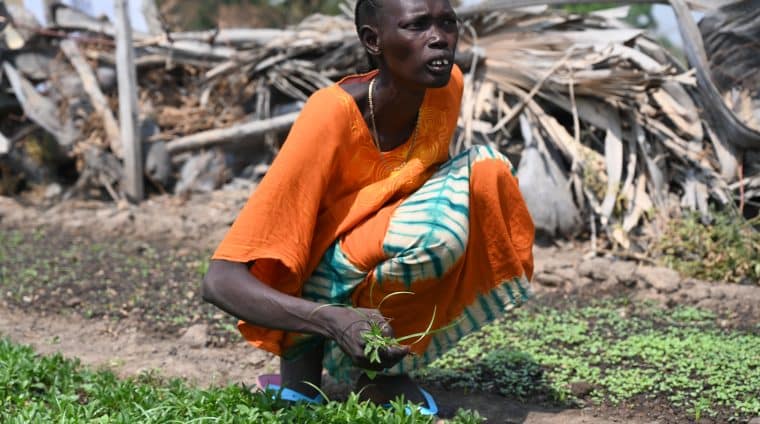Campaign
Debt Cancellation Campaign

To mark the Jubilee Year declared by Pope Francis, Jesuit Missions calls on the UK Government to:
- Stop the debt crisis now by cancelling unjust and unsustainable debts, so that indebted low-income countries can spend money on health, education, youth opportunities and adapting to and mitigating climate change.
- Support a Debt Justice Law to make private lenders take part in debt relief. UK government support for such a law would have a real impact, since 90% of private debt contracts are governed by English law
- Prevent future debt crises by establishing a new, binding, comprehensive debt framework within the United Nations.
We want to make sure the Prime Minister gets the message that we believe in debt cancellation and invite you to join us in sending an email to him.
Use the form below to send your email:
Dear Prime Minister,
To mark the Jubilee Year called by Pope Francis, I call on the UK Government to:
- Stop the debt crisis now by cancelling unjust and unsustainable debts, so that indebted low-income countries can spend money on health, education, youth opportunities and adapting to and mitigating climate change.
- Support a Debt Justice Law to make private lenders take part in debt relief. UK government support for such a law would have a real impact, since 90% of private debt contracts are governed by English law.
- Prevent future debt crises by establishing a new, binding, comprehensive debt framework within the United Nations.
Please let me know what you will do about this.
CLIMATE FINANCE IN THE JUBILEE YEAR
“The condition of the poor is a cry that, throughout human history, constantly challenges our lives, societies, political and economic systems, and, not least, the Church.” (Pope Leo, Dilexi te)
In this Jubilee year, Jesuit Missions, working with over 80 faith leaders and faith-based organisations worldwide, has endorsed a document calling on governments and international institutions to help many of the lowest income countries by delivering urgent debt relief and implementing far-reaching reforms to the global financial system.
WHAT IS A JUBILEE YEAR?
There is a Jubilee every 25 years in the Catholic Church. Historically, Jubilee years have seen the cancelling of debts and redistribution of wealth. Laudato si’ clearly tells us that developed countries have an obligation to repay the “ecological debt” they owe, by assisting poorer countries. In the Jubilee tradition, debt relief must be a central pillar of this support.
WHY IS DEBT IMPORTANT TO THE CLIMATE DEBATE?
1. Countries crippled by debt interest payments cannot afford life-saving climate action
Without debt relief, much of the indebted Global South will not have the money to invest in their green transitions and protect their citizens from devastating climate impacts. In 2021, lower income countries spent over five times more on external debt payments than on adaptation, while nearly half of humanity lives in countries that spend less on education or health than debt interest.
2. Loan-based climate finance creates a debt-climate trap
Most climate finance is provided as loans, with interest to pay. Without adequate grant-based finance for Loss and Damage and adaptation, Sub-Saharan African countries will have to take on nearly $1 trillion in debt by 2032.
3. The climate crisis fuels growing debts
When a natural disaster hits a low-income country, they often borrow money to rebuild, due to the lack of an adequately funded global Loss and Damage funding instrument. This increases their debt burden and risk, raises interest rates on future loans, and means reduced spending on climate adaptation. This makes a future natural disaster more likely and worse.
4. Global North conditions on debt bailouts exacerbate fossil fuel exploitation
Needing to pay back huge foreign loans, in foreign currency, makes necessary highly damaging extractivism: exploiting fossil fuels – and producing energy-intensive crops – for export to the rich North. Without meaningful debt relief, many countries will have no choice but to make use of their natural resources, harming the environment in the process.
5. Debt and climate breakdown are unjust legacies of the same Global North exploitation
Speaking to the COP29 climate summit, Pope Francis said that “ecological debt and foreign debt are two sides of the same coin, mortgaging the future.” This references the fact that the Global South has been exploited twice over: once through the enormous greenhouse gas emissions of the industrialised Global North, and secondly via their extractivism and private sector’s predatory lending.
This Jubilee Year, there is a moral imperative for developed countries to tackle these crises.
WHAT NEEDS TO CHANGE?
The good news is that, because debt and climate issues feed each other, many policy interventions can tackle both at the same time. There is more than enough wealth and capital globally to meet these challenges; we need political leadership to better distribute it. As Catholic actors, we are calling for the following measures that governments could pursue to remedy this polycrisis:
A proper plan for much more grant-based climate finance
If climate finance continues to come as loans, low-income countries will remain trapped in debt spirals. Countries could step up in this respect and provide grant-based finance bilaterally, explore polluter-pays taxation, and reform Global North-dominated international financial institutions.
Fix the broken debt system
All governments must support and enact a UN-based framework for relieving, and preventing the accumulation of, unsustainable and illegitimate debts. Debts to the private sector should be tackled by introducing legislation in key jurisdictions, like the UK, to compel these lenders to take part in restructuring processes. Existing and future arrangements must include provisions for the automatic cancellation of debt payments for a set period following a catastrophic climate event.
An end to harmful conditionality
The IMF and World Bank, as increasingly central climate finance providers globally, must properly embed the Paris Agreement’s 1.5°C target in all their lending operations, particularly energy and agriculture projects.
Avoid debt-for-climate swaps
These are problematic instruments as, if a government does not have enough resources to pay its creditors, it is unlikely they have enough to sustainably fund climate action. Swaps therefore risk budget raids from health and education departments.
You can read the full version of this paper here.
latest news
1 Corinthians 12:7-11
“To each is given the manifestation of the Spirit for the common good…” including, “the discernment of spirits”.

help us continue our vital work
With your support, we can continue our work improving the lives of those who need it most.




